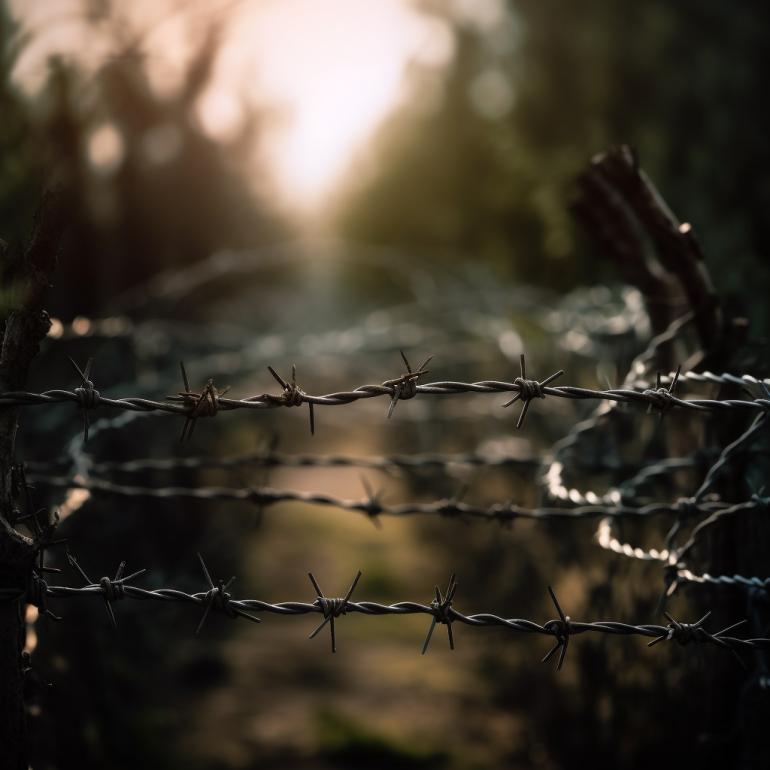
Sex trafficking is a fast-growing and horrific crime that can have effects on people of a wide range of ages and genders. Survivors need and deserve support groups, financial aid, and a sense of community to heal — let’s talk about resources for sex trafficking survivors.
Human trafficking is rapidly becoming one of the most pervasive illegal trades globally. Currently, over 40 million individuals are trapped in modern slavery, enduring sexual exploitation and forced labor for profit. This criminal industry, worth billions of dollars, devastates countless lives.
Breaking free from trafficking is just the first step in a survivor’s journey, often marked by trauma and the challenge of rebuilding their lives. Upon gaining freedom, survivors frequently lack basic necessities such as money, food, and a support system.
One resource available to survivors of sex trafficking is StrongerThan.org, a supportive community dedicated to helping individuals overcome trauma and reclaim their lives. StrongerThan.org offers legal guidance and connects survivors with local support groups and aid organizations, empowering them to turn their pain into strength.
Human Trafficking Defined
Involuntary servitude and debt bondage are other names for human trafficking — the act of using force, fraud, or coercion through labor or sexual exploitation of another person. Human trafficking usually starts when a gang member, business owner, diplomat, or pimp offers a minor or similarly vulnerable adult a seemingly innocent and simple job offer that morphs into an abusive situation.
Organized criminals manipulate vulnerable people to make money and expand their reach through different types of trafficking, such as:
- Sexual exploitation: Forced situations in which a person is incentivized to perform sexual activities or have sexual activities performed on them. All too often minors are also sexually exploited in the form of child sex trafficking. They are typically tricked into believing they are in a consensual relationship known as grooming.
- Forced marriage: Non-consensual marriages allow traffickers to abduct vulnerable people either bringing them to the United States or to another country. Forced marriages also exist within the United States. Forced marriages are often closely tied to sexual abuse and may involve abusive child marriages.
- Forced criminal activities: Theft, drug smuggling, counterfeit sales, and fraud are some of the illegal activities targets are asked to perform. If they refuse, they could face severe punishment like sexual abuse, rape, or torture at the hands of their captor.
Over 40 million individuals are trapped in modern slavery, including sexual exploitation and forced labor, according to The New York Times.
What Is Sex Trafficking?
Traffickers solicit vulnerable people and threaten them with serious physical or psychological harm, manipulating them to perform sexual acts. Sex trafficking or forced labor is the recruitment, harboring, transportation, provision, or obtaining of a person for labor or services through the use of force, fraud, or coercion for subjection to involuntary servitude, peonage, debt bondage, or slavery, according to 22 U.S.C. § 7102.
The United States Trafficking Victims Protection Act (TVPA) is the government’s primary tool to combat trafficking and eliminate different forms of modern slavery with other resources and campaigns. The framework concentrates on the “4 Ps of Human Trafficking“: prevention, protection, prosecution, and partnership with the help of organizations executing the message worldwide.
Previously, there were no laws to help survivors take legal action against perpetrators. In 2003, the act was amended, allowing survivors to sue their abusers in civil court and hold them accountable.
Child Sex Trafficking
Commercial sexual exploitation of children (CSEC) is the basis for child sex trafficking. Young boys and girls are forced into unwanted sexual situations or “asked” to perform sexual acts. Child sex trafficking is prohibited by 18 U.S.C. § 1591.
Young children without a familial support system, homeless or runaway youth, and children in the welfare system are often easy targets for traffickers. In many cases, the abuse is normalized with multiple generations and family members involved or complicit.
Experienced traffickers typically use manipulation tactics to attract and control children. They might make them feel accepted for who they are, listen to them, and promise to look after them. Luring, seduction, and grooming children are some common psychological strategies.
The Effects of Sex Trafficking on Survivors
Survivors of sex trafficking often have a history of complex trauma. They might suffer from years of physical and emotional abuse and threats, isolation from friends and family, bullying, and financial manipulation.
The loss of freedom, their childhood, and disruption within families can take a serious personal and mental toll. Survivors of sex trafficking may struggle with anxiety disorders, memory loss, post-traumatic stress disorder (PTSD), depression, substance abuse, and eating disorders.
Healing from trauma using different therapeutic methods can help free survivors of overwhelming thoughts and feelings, help them feel safe and empowered, and improve their overall quality of life. Sex trafficking survivors have access to a variety of treatment options and health information, some of which might be low-cost or free.

Resources for Survivors of Human Trafficking
Sex trafficking survivors often have highly specialized emotional and psychological needs and usually face many barriers to reclaiming their lives post-trauma — from addiction and mental health struggles to eating disorders to sexually transmitted diseases.
Organizations that help human trafficking survivors, such as StrongerThan.org, offer valuable resources and benefits to facilitate healing and recovery, such as mental health treatment options, support groups, local medical services, financial assistance, and more.
Community Resources for Human Trafficking
Access to local partners and community resources can help human trafficking survivors tap into important services. The Center for Family Services and its 24/7 hotline and human trafficking survivor groups, for example, help make sure individuals never feel alone or without support as they get back on their feet.
United Against Human Trafficking promotes direct services like its trauma-informed Real-Talk Program to encourage healing activities, trauma processing, and self-care practices. At the same time, other organizations emphasize a similar approach with peer support groups and recovery programs that concentrate on the pressing issues survivors face, such as alcohol, drug, gambling, and sex addiction.
Online Resources for Sex Trafficking Survivors
Online resources devoted to sex trafficking help spread awareness and offer solutions to identify and protect survivors. For instance, sex trafficking survivors in crisis or recovery might contact the National Human Trafficking Hotline. This 24/7 confidential resource offers assistance through safety planning, emotional support, or immediate connections to emergency services through trained providers and law enforcement partners.
Another source of support, the National Center for Missing and Exploited Children, is a proactive program that helps families, law enforcement, and social service and mental health agencies recover missing and sexually exploited children.
Transform your pain into your greatest strength
How To Find Human Trafficking Resources Near Me
Sex trafficking survivors might not have access to money, housing, food, healthcare. An easy to use and convenient website, the VictimConnect Resource Map is an online search tool survivors can use to access national and local resources to report trafficking or find a doctor or housing.
The National Human Trafficking Hotline is another informative and valuable online resource, as its robust referral directory connects survivors with local organizations and programs that help with emergency, transitional, and long-term services.
Mental Health Resources for Trafficking Survivors and Allies
Mental health issues can be a long-term part of trafficking survivors’ lives long after the torment is over.
Survivors say listening is one of the most valuable things another person can do, as many false narratives exist about trafficking. For instance, people misread the signs of trafficking, or they use hurtful terms like “saved” and “rescued.” The public is naive about sex trafficking, and sadly, it allows more traffickers to fly under the radar.
CSEC resources educate people, particularly students, on how to appropriately respond to sex trafficking.
Legal Resources and Assistance for Sex Trafficking Survivors
Legal assistance, recovery resources, and trauma therapy often give sex trafficking survivors a second chance at life.
However, this type of support comes at a high price. Survivors often face myriad losses and financial disadvantages, such as lost or impacted wages, housing costs, medical bills for physical care, or treatment for substance abuse or addiction issues, among others. For example, psychotherapy is considered one of the most effective treatment options for recovery. Psychology Today reports therapy costs range between $100 to $200 per session (or may be around $20 with insurance).
Civil lawsuits can help secure financial security to aid in recovery. Compensation secured in a civil lawsuit can cover pain and suffering, loss of consortium, enjoyment of life, and possible punitive damages.
Civil attorneys tend to operate best in their specialties. For example, a sex trafficking lawyer would likely have the most experience in these cases as well as connections to resources local to you.
Resources for survivors of abuse, like the Polaris Project, Resilience Fund, and the Office for Victims of Crime (OVC), link survivors to different financial assistance opportunities so they can thrive again.

Pursuing Justice: Who Could Be Liable in Sex Trafficking Cases?
Prohibited under international human rights law, sex trafficking violates fundamental human rights. Survivors can pursue civil charges against perpetrators and other people or companies involved in facilitating these illicit practices.
For instance, hotels/motels and personnel who willfully disregard the sex trafficking of minors, “buyers,” and criminal enterprises can be held liable in a sex trafficking lawsuit.
What Is the Statute of Limitations on Sex Trafficking Cases?
There is no federal statute of limitations placed on human trafficking, and states treat every case as unique. The Eliminating Limits to Justice for Child Sex Abuse Victims Act was signed into law by President Biden in September 2022, eliminating the filing window for federal human trafficking cases. The legislation removes the statute of limitations for TVPRA civil claims brought by minors, and the law is not retroactive. Before this, it was ten years after survivors turned 18 years old or ten years after the injury was discovered.
It is wise to consult a specialized legal expert who understands the intricacies of sex trafficking cases.
StrongerThan.org Is Here To Help: Resources for Sex Trafficking Survivors
Life after trauma looks different for everyone. Sex trafficking survivors, for instance, can struggle with their identities, personal experiences, mental health issues, and safety after exploitation. Survivors also need help with important daily tasks, like using household appliances, finding child care, job training, financial management, and family reunification.
At StrongerThan.org, we are devoted to creating and sharing promising resources and services like emergency and legal assistance that allow sex trafficking survivors to heal and thrive again. For instance, survivors can hold their abusers accountable through civil action, obtain compensation for their injuries, and prevent other innocent people from getting hurt.
Here, survivors can also quickly locate community connections like therapy services, healthcare, funding, and housing options. We regularly support other like-minded organizations passionate about helping with recovery efforts and can help you find your healing journey today.


